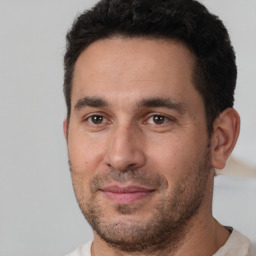INTRODUCTION
Human resource development is a crucial function for any organization as it provides a framework for helping employees develop their personal skills, abilities, organizational skills, knowledge, etc. HRD includes various opportunities like employee training, employee career development, performance management, key employee identification, tuition assistance, organization development, etc. A company needs to develop an effective human resource development plan to maximize the effectiveness of organizational staff. British Petroleum is one of the leading oil and Gas companies (Sheehan, Garavan, and Carbery, 2014). It was established in 1908 as the Anglo-Persian Oil Company. It is a vertically integrated company operating in almost all areas of the oil and gas industry, like exploration and production, refining, distribution and marketing, petrochemicals, power generation, etc. It has been operating in more than 70 countries all around the world. This assignment will mainly focus on the leadership development of the company as well as a discussion of areas of HRD interventions.
BODY
The organization selected for this essay is British Petroleum, headquartered in London, England. It is one of the world's largest oil and gas companies and is the sixth largest in terms of market capitalization. As above mentioned, it has been operating in many countries worldwide and in almost all areas of the oil and gas industry (MacKenzie, Garavan, and Carbery, 2012). Companies must have efficient leaders who can manage and guide employees and every activity going on in the organization. For this, leaders should have specific qualities that can help the company maximize its profits and revenues and they should also formulate the best plans to help the company retain its position in the global market.

The reason for choosing this organization is that, nowadays, British Petroleum is facing problems with leaders as they lack good and qualified leaders who can help them at every step and look after every process and operation of the company. BP employs a huge workforce and they require good guidance and monitoring by efficient leaders, which can support the company as well as employees to maximize production and retain market position. Leaders are important personnel of a company who possess unique qualities that make them proficient leaders, like being confident in what they do, compassionate, appreciative, taking risks for the company, being fair with the company and employees, being flexible enough, and being very honest, They respond to the needs of employees as well as other staff members of the company (Ardichvili, 2011). British Petroleum lacks such leaders, due to which they are not able to make good decisions for the company and are not able to satisfy the needs of the company as well as its employees.
To improve the conditions of the company, the management of BP has decided on various leadership development programs that can improve the skills and knowledge of leaders and can also recruit qualified leaders who can handle the responsibilities of the company. To achieve business success efficiently, the company has to let go of all the patterns from the past and inculcate a new type of leadership within the working environment (Shuck et al, 2011). This should be done by involving each member working in a company and creating robust solutions that can improve the condition. One of the leadership programs organized by British Petroleum is the Future Leaders Programme. Initially, the interventions in human resources were considered negative as there was a great need to provide training to the employees of this department, which is important to establish a link with business development. It was a difficult task to establish a link, and much investment of resources was required. Also, it was considered that human resource managers may not be perceived as business partners. On real grounds, they are treated as second-class citizens whose prime role is to ensure the supply of personnel at work.
Leaders operating in such a reputed and global company have to be highly proficient and qualified to handle and manage the company effectively. British Petroleum operates at every stage of the energy life cycle and it is essential to have good leadership to stay ahead in a competitive and constantly changing global market. BP has started a 4-year rotation program, known as the Future Leaders Program (FLP). In this, the company hires enthusiastic, talented people from different ranges of professional backgrounds and gives them the skills and opportunities to drive our Downstream business forward. Whoever joins this program becomes a permanent employee. This program consists of mainly a 2- to 24-month rotation within one of the distinctive capability areas of the company and a second rotation depending upon development requirements and BP's business needs. It provides desired potential, skills, talent, and experience to employees, which help them to lead British Petroleum in the future. The mentor will guide and support their mentee at every step of the program. In addition, they will give them real responsibility and exposure to business and the global energy industry. Its main approach is to develop talented men and women with a global mindset who can become leaders in the future. In this stage, talented people are hired at the early stage of their careers and given appropriate training so that they can perform their work in a better manner (Tomozumi, Nakamuraand, and Yorks, 2011). Some requirements have to be fulfilled by employees joining this program and they are post-graduate degrees, 5 years experience in BP's downstream distinctive capability areas like commercial, sales, marketing, retail, and technology; a flexible approach to work, location, and placement; the ability to speak more than one language; and having lived or worked abroad. BP is efficient enough to provide such training programs to develop stretch skills and prepare them for the future. They are looking for leaders who can give valuable feedback and dare to speak up when something is wrong and provide different ways to correct those.
The main aim of developing leadership development programs is to prevent possible threats and maximize the efficiency of the company (Sadler-Smith, 2014). Leaders should be highly qualified and talented, as they will work for the most refined and global company, that is British Petroleum. Leaders are responsible for making efficient strategies for the company and managing all crucial stuff of the company to ensure great success and maximum profits for BP. The benefits of good leaders can be many, as some of them are described above and some are: they motivate their employees and other staff members to perform their work properly and ensure good work done by them, good leaders build confidence within employees; and they work hard in their activities (Hanand and Boulay, 2013). They analyze the overall situation of the organization list down all weak areas and make effective strategies to improve them. Leadership is the most influential and crucial element for every business and only leaders have the abilities and skills to inspire and motivate their teams. Sometimes a company lacks a proficient leader, which can result in huge losses and reduction of motivation and more in employees. This is not bearable in multinational companies like British Petroleum. It is essential to understand the importance of the vision, mission, objectives, action plans, and goals of the company. British Petroleum develops various HRD interventions to design solutions to improve leadership and increase the skills and talent of candidates to grow as leaders. They have developed various programs as mentioned above to increase the efficiency of candidates and helped to improve their knowledge concerning the company as well as other crucial areas of the organisation.
Key areas of intervention include learning need assessment, method, design, delivery, and evaluation. The method is a different leadership program that is given to candidates and leaders who learn to enhance their skills and knowledge in some areas and can help the company at every step. The company can provide leadership training methods to eligible individuals (Luthans, 2012). Top-level management should critically analyze every method provided to them and scrutinize the most suitable methods for giving training.
In learning need assessment, superiors can identify critical areas to assess learning needs and provide the best methods according to need. They can provide training through e-learning, audio-visual aids, video conferencing with professionals, practical exposure to roles and responsibilities, on-the-job and off-the-job training to individuals, etc. Managers need to analyze our ask areas at some time intervals so that the smooth flow of work is not hindered (Doloriert, Sambrook, and Stewart, 2012). This helps the company to maintain its pace can maximize its efficiency from time to time. They can also provide training to a new candidate who has joined the company recently to ensure better work performance for their side.
Delivery of programs should be prepared in such a manner that includes the entire specific requirement, which can aid employees to learn different things and talents after going through the programs. They may deliver specifications like appropriate training methods, proper skill training, encouraging the individual to learn something new, increase in the performance of employees after taking training, elimination of the main problem, etc.
Initial positive critiques of the program organized by British Petroleum are:
- Great opportunity to join a reputed company in an entry-level leadership position.
- Candidates get to now deep and broad understanding and knowledge of the company in a short time.
- Great exposure and visibility at the senior leadership level were enabled by a wide and diverse source of community, which spanned worldwide across the downstream business.
- The company provides a work-life balance for each employee.
- Great opportunity to handle such a reputed and leading company.
- Great learning experience under leadership programs.
- Increase in efficiency of an individual.
- Superiors use effective methods while delivering development programs to make employees understand the role and responsibility of leaders.
- Companies must organize such activities to increase the knowledge and skills of leaders as well as individuals who want to become efficient leaders.
- Superior analysis of the outcome and result of the development program ensures that every individual gets the point of training.
Read one more sample on the importance of HRD in Today's Day and Age.
Andragogy is used as a synonym for adult education. It was given by Malcolm Shepherd Knowles. Andragogy is equivalent to the term pedagogy. In Greek, Andragogy means man leading in comparison to pedagogy, which in Greek is known as child learning (Baek and Kim, 2014). Knowler has developed four assumptions of adult learning, and they are different from assumptions about child learners. Afterward knowknowlers one more assumption.
The first one is self-concept. When a person matures, his or her concept starts moving towards being a self-directed human being from a dependent personality.
The second one is the adult learner experience. When he or she grows, they collect a lot of information and experience in their lifetime that becomes an increasing source for learning.
Their one is a readiness to learn. When he or she grows up, they want to learn more, become oriented towards self-development, and increase their knowledge and skills.
The fourth one is an orientation to learning. As a person matures, his or her time perspective changes from one of the postponed applications of knowledge to the immediacy of applications. As a result, their orientation shifts towards one of the problem-centeredness from one of the subject-centeredness.
And the last one is motivation to learn. As a person matures, he or she becomes more motivated to learn new things.
There are some important principles related to adult learning and they are mentioned below:
- In every planning and evaluation of instructions, adults should be involved.
- Whatever experience adults are getting, including mistakes, they are important as they are the basis for learning activities.
- Adults are more interested in learning subjects that give them immediate outputs as well as a good impact on their jobs and personal lives.
- Adult learning is problem-centered rather than content-oriented.
It is necessary to provide leadership training to eligible candidates to avoid any kind of bias and inefficient working (Shortland, 2011). British Petroleum should take care of all needs and requirements that are required by their leaders and try to fulfill them as soon as possible. If they lack efficient leaders within the organization, they can carry out the recruitment process to hire talented and qualified leaders, which can help the company achieve its desired success and retain its market position for a longer time.
CONCLUSION
From the above assignment, it can be concluded that human resource development is an essential part of an organization that helps employees develop their skills, talents, and knowledge in every field possible, which can help them implement the best of their ideas in strategies that will ultimately lead to the accomplishment of the ultimate vision of British Petroleum. BP is facing a lack of leaders and effective leadership that can inspire and motivate employees as well as the company. They are one of the most reputed oil and gas companies, and they cannot compromise with their strategies, production, employees, reputation, and market position. To handle these, they require highly qualified leaders who can help them with their assistance. BP sometimes organizes various leadership programs that help new as well as existing employees get training related to leadership and their practical roles. This helps them to become proficient leaders in the future.
REFERENCES
- Sheehan, M., Garavan, T. N., and Carbery, R., 2014. Innovation and human resource development (HRD). European Journal of Training and Development. 38(1/2). pp. 2-14.
- MacKenzie, C. A., Garavan, T. N., and Carbery, R., 2012. Through the looking glass: challenges for human resource development (HRD) post the global financial crisis—business as usual? Human Resource Development International. 15(3). pp. 353-364.
- Ardichvili, A., 2011. Sustainability of nations, communities, organizations, and individuals: the role of HRD.
- Shuck, B., and et al. (2011). Employee engagement: An examination of antecedent and outcome variables. Human resource development international. 14(4). pp. 427-445.
- Tomozumi Nakamura, Y., and Yorks, L., 2011. The role of reflective practices in building social capital in organizations from an HRD perspective. Human Resource Development Review. 10(3). pp. 222-245.
- Sadler-Smith, E., 2014. HRD research and design science: recasting interventions as artifacts. Human Resource Development International. 17(2). pp. 129-144.
- Han, H., and Boulay, D., 2013. Reflections and prospects for evaluation in human resource development. New Horizons in Adult Education and Human Resource Development. 25(2). pp. 6-18.
- Luthans, F., 2012. Psychological capital: Implications for HRD, retrospective analysis, and future directions. Human resource development quarterly. 23(1). pp. 1-8.
- Doloriert, C., Sambrook, S. and Stewart, J., 2012. Power and emotion in doctoral supervision: implications for HRD. European Journal of Training and Development. 36(7). pp. 732-750.
- Baek, P. and Kim, N., 2014. Exploring a theoretical foundation for HRD in society: Toward a model of stakeholder-based HRD. Human Resource Development International. 17(5). pp. 499-513.
Related Samples:
Human Resource Management Goals
Human Resource Management at Intercontinental Hotel Group


 Company
Company













